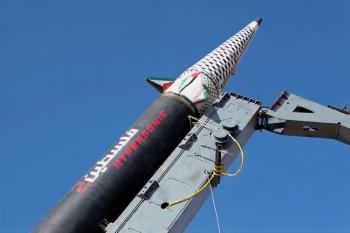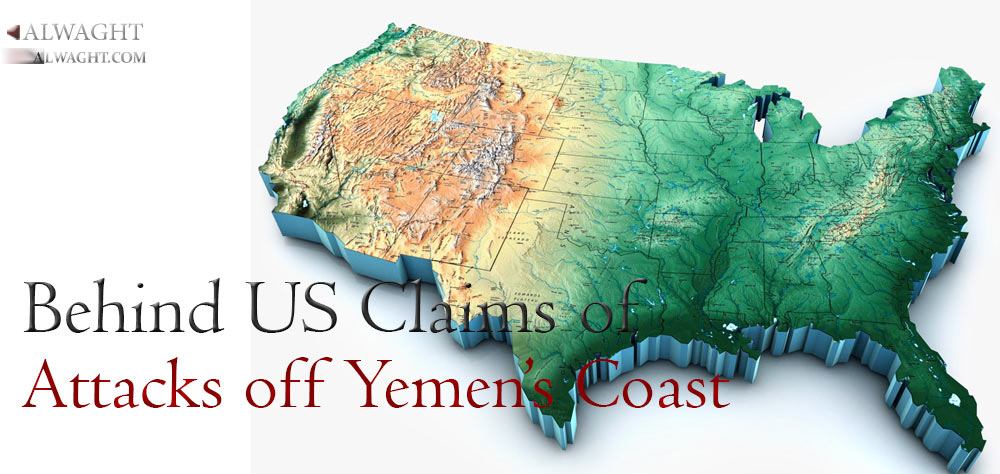Alwaght- Pentagon claimed on Sunday—the third time in one week— that its warship Mason was the target of an unsuccessful cruise missile attack off Yemen’s coast, blaming it on the Ansarullah resistance movement.
The US destroyer had to deploy countermeasures to avoid being hit by missiles allegedly launched from a territory controlled by the Ansarullah movement in Yemen. The announcement came just two days after the US claimed it conducted “retaliatory” attacks against three coastal radar sites in Ansarullah-controlled areas. At the time, the Americans also claimed that their destroyer had come under attack in international waters.
However, both Yemen’s army and the Ansarullah leadership have rejected these claims, denying that the said attack on the US warship and the ensuing retaliation against their positions had taken place.
While there may not seem to be a viable reason why the US would spread false news of attacks on its warship, observers contend that the entire media buzz was purposefully created. If indeed there has been no such exchange of fire, then why would Washington go through so much trouble to propagate an untruth?
The US has no reason to interfere in Yemen, at least none that it can use to justify any action taken against the war-ravaged country. In Afghanistan, there was the Taliban. In Iraq, there was Saddam Hussain in 2003, and ISIS after that. In Syria, there were alleged chemical weapons. Washington is always vigilant to find an excuse for an intervention and when there is none it makes one. That’s why the same observers believe that the purported attack on Mason is a pretext to legitimize a planned intervention in the war on Yemen. However, there are other possible actions that may be taken to put further pressure on Yemeni resistance groups to succumb to its oil-rich Arab ally, or at the very least make them come to negotiation table and sign a deal that fulfils Saudis interests.
Another question at hand is why would Washington go as far as that to end the war on Yemen?
The Saudi regime miscalculated when it launched its aggression against Yemen. Riyadh is stuck between a rock and a hard place as on the one hand, it is suffering from economic and political repercussions of the war, and on the other hand, backing out is out of the question; there is an image to live up to and retreating from a war against the Arab world’s most impoverished nation will not earn them their stripes.
In December 2015, the Saudi economy minister said that the regime’s expenditure increased that year by 13 percent to reach USD 260 billion, adding that about USD 5.3 billion of that figure was in military and security, which he attributed to the war on Yemen.
Noting that it has been almost a year since that statement was issued, Saudi Arabia’s war expenditures have surely piled up. Amid a struggle with its rising annual budget deficit, the war on Yemen has definitely contributed to its recent economic woes.
Despite the sums the Saudis have invested to conquer Yemen and the coalition it formed to assist it do so, Riyadh has so far failed to fulfill any of its pre-set goals, namely, reinstating resigned President Abd Rabbu Mansour Hadi and keeping a tight grip on power.
Another pressing concern for the Saudis is increasing condemnation for its violation of human rights in Yemen. Indiscriminate bombings, massacres, starvation, and widespread destruction have caught the eye of human rights groups; therefore, international public opinion is turning against Riyadh. The massacre in Sana’a which killed at least 140 people in a raid on a funeral is the latest incident to drive such attention. For example, calls for an end to profitable arms sale to Saudi Arabia and cooperation with the regime, including in the US and UK, are on the rise.
So perhaps the Saudis thought it was a good idea to get a third party to intervene on its behalf, to save face.
A seeming twist
Britain and the US called for a ceasefire in Yemen “within hours” on Sunday, showing off their not so quick response to the Sana’a massacre.
"This is the time to implement a ceasefire unconditionally and then move to the negotiating table,” The US secretary of state, John Kerry said after a brief meeting with the British foreign secretary, Boris Johnson.
Kerry said he, Johnson and the UN special envoy Cheikh Ahmed were calling for the implementation of a ceasefire “as rapidly as possible, meaning Monday, Tuesday”. Kerry and Johnson also met the Saudi foreign minister, Adel al-Jubeir.
In spite of this apparent enthusiasm to end hostilities, an intervention is on its way. Whether military or political, however, is not clear yet. What is clear, on the other hand, is that the Yemeni resistance— comprising both the army and the Ansarullah movement— is ready to take on forthcoming challenges as long as the people of Yemen continue to pledge their support.



























